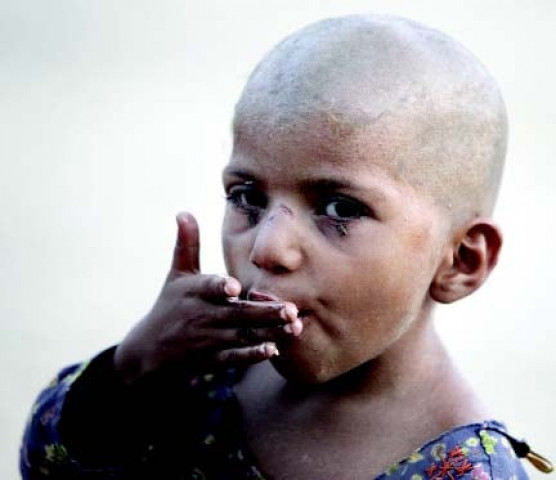‘They don’t really care about us’
As a whole, the Hindu community in Pakistan has suffered a great deal in this disaster, said Dr Kumar.

The Hindu population in Pakistan comes up to around nine million, out of which seven million are concentrated in Sindh, where the floods are still wreaking havoc. As a whole, the Hindu community in Pakistan has suffered a great deal in this disaster, said Dr Kumar.
The PHC patron said that there is a major trust deficit between the community and the government. “We would rather trust the army.”
According to Dr Kumar, the council is not just working for the relief of Hindu flood survivors but for “anyone and everyone whom the floods have left homeless”. So far, the PHC has raised around Rs2.5 million. They plan to donate the money in those relief camps where there are Hindu flood survivors as well.
After the floods devastated Ghouspur, gangs of bandits came to snatch whatever was left. “People came in trucks to carry away looted goods,” said the doctor, adding that many of “their people” lost all that they had managed to save from the flood to these robbers.
More than 90 shops and 50 houses were ransacked with families held at gunpoint, Dr Kumar said, adding that law enforcement agencies were nowhere to be found at this crucial point in time.
Mahesh Kumar, a resident of Ghouspur, said that there is still water in the surrounding areas of the city. He lamented the robberies more than the flood. “God saved us from the flood’s devastation but did not protect us from the bandits,” he lamented. Mahesh’s family is now living in Karachi. They are afraid of moving back since Ghouspur is still cut off from other areas and there is a possibility of an epidemic ravaging what is left of the residents.
Dr Kumar said that when they saw that the government had failed to help, they appealed to the administration to deploy the army so that people in that area could be protected.
After the floods, around 500 Hindu families came to Karachi from the Ghouspur, Thul, Karampur, Jacobabad and Kandhkot.
While most of those from Thul and Kandhkot are moving back to their villages out of the fear that they might also lose what the flood has left over, there are also many who are prefer to stay as far away from the water as possible.
Gopal Sagar, who hails from Kandhkot and lives in Karachi, said that 30 members of his family came to Karachi and are still unsure about moving back. “Magar kitna arsa doosron per aasra karein gay (how long will they rely on other people)?” he asked.
He added that while the PHC was helping most of the flood-affected Hindu community, many of the survivors were also staying in hotels, temples or at their relatives’ places.
With the recent threat to Thatta and Hyderabad divisions, members of the council have now shifted focus to the one million people who are now at a risk of being affected.
Flood warnings in Jacobabad, Jhirk, Keti Bunder and other surrounding areas have made the council even more worried. “While the Hindus in Kashmore are from the middle income class, those here are greater in number and from the lower class,” Dr Kumar said, adding that these people will require more help if the flood hits.
He said that the council is delivering relief goods at different camps in Hyderabad, including the army relief camp. But we don’t want to help via the government, added Dr Kumar.
Raja Assermal Manglani, the president of the PHC, told The Express Tribune that they have also asked 12 doctors from the Jinnah Postgraduate Medical Centre, to help them with their relief activities. These doctors, all belonging to the Hindu community, will go to different areas in Sindh and provide treatment to the flood survivors.
While these efforts seem to have things under control, the community fears that if the flood hits more areas, they might not be able to do enough to help all those who need it.
Published in The Express Tribune, August 22nd, 2010.



1724319076-0/Untitled-design-(5)1724319076-0-208x130.webp)















COMMENTS
Comments are moderated and generally will be posted if they are on-topic and not abusive.
For more information, please see our Comments FAQ